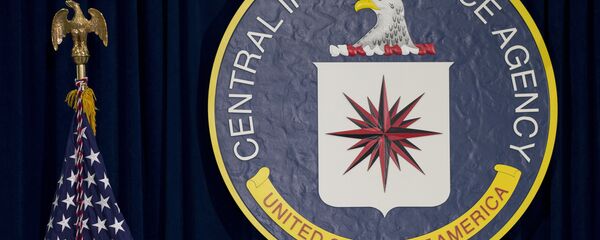Shortly after the terrorist attacks on the United States on September 11, 2001, the Central Intelligence Agency weighed using a sedative used to treat anxiety as "possibly worth a try" as a truth serum, newly-unveiled records reveal.
The drug "afforded some amnesia, a sometimes desirable effect," the documents say.
The CIA drug research program, fittingly called "Project Medication," was just one of several revelations to come from documents ordered to be unsealed by a judge in response to an ACLU lawsuit.
The report focuses on CIA doctors, psychologists, physician assistants and nurses who were directly involved in the so-called enhanced interrogation program between 2002 and 2007, who oversaw 97 prisoners in 10 secret torture facilities.
The reason the CIA never asked the Justice Department for approval to use drugs as an "enhancement" to their interrogations was that the CIA counterintelligence team "did not want to raise another issue," since they had already approved sleep deprivation, confinement in small cages and waterboarding as sanctioned tactics.
The CIA did not comment on the documents, but "government lawyers" cited by the Associated Press downplayed the significance of the documents, arguing that they detailed an officer's impressions of the program, not the CIA's final assessment.
The ACLU and the CIA have been battling over the documents for two years nonetheless. A federal judge ordered the CIA to release them in September 2017, but the government made three more attempts to prevent the disclosure, and it is expected to make another argument that the judge's order went too far. The ACLU received the bulk of the documents in August.
One CIA practice detailed in the report is called "walling" — when a detainee is thrown against the wall with a towel rolled around their neck to prevent death from whiplash.
"CIA doctors decided that waterboarding actually ‘provided periodic relief' to a prisoner because it was a break from days of standing sleep deprivation," the ACLU wrote in a statement. "CIA doctors decided that when a different prisoner was stuffed into a coffin-sized box, this provided a ‘relatively benign sanctuary' from other torture methods."
"CIA doctors described yet another prisoner — who cried, begged, pleaded, vomited, and required medical resuscitation after being waterboarded — as ‘amazingly resistant to the waterboard,'" the ACLU went on to note.
The CIA, however, calls its enhanced interrogation program "reassuringly free of enduring physical or psychological effects."
"The enduring pain and suffering experienced by the survivors of the CIA program is immense, and includes severe, complex post-traumatic stress disorder, depression, physical ailments and psychosocial dysfunction," Dr. Sondra Crosby of Boston University's School of Medicine and Public Health, who has treated torture victims, two of whom were held at CIA black sites, told AP.



